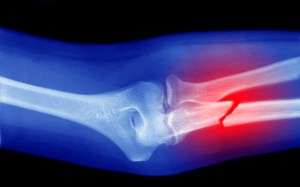CVS Pharmacy pulled Zantac from its shelves this weekend over new concerns that the drug might contribute to cancer. The heartburn medication and its generic counterpart have been linked to some cases of cancer, the FDA found this month, and CVS just acted on that news. Customers left with Zantac they do not want can return it to the store.
CVS issued a statement on its official website on Saturday, explaining the new measure around Zantac. The company said that it has “suspended the sale of all Zantac brand and CVS Health brand ranitidine products until further notice.” Ranitidine is the ingredient noted in a Product Alert from the U.S. Food and Drug Administration earlier this month.
Videos by PopCulture.com
The FDA found that some ranitidine products may contain a low level of a “probable human carcinogen” known as nitrosodimethylamine, or NDMA. CVS noted that this suspension of sale was done “out of an abundance of caution,” and Zantac users may not be in danger.
Still, the FDA is reportedly still evaluating ranitidine products on the shelves, as well as NDMA itself. So far, the administration has not conclusively shown that NDMA in ranitidine poses a health risk to the public. CVS noted that “the levels that FDA is finding in ranitidine from preliminary tests barely exceed amounts found in common foods.”
While CVS has taken Zantac and analogous products of the shelves, these medications have not been officially recalled. However, the pharmacy chain is accepting returns of Zantac and its own generic brand of ranitidine, and offering a refund.
Ranitidine provides relief from the symptoms of heartburn. It is an H2 Blocker, and is just one of several options available. For those looking to get heartburn relief while avoiding ranitidine products, CVS recommends other over-the-counter H2 Blockers such as Pepcid, its generic counterpart famotidine, or Tagamet and its generic counterpart, cimetidine.
Zantac and ranitidine are not the only medications showing concerning levels of NDMA, according to a report by CNN Health. The FDA has reportedly been investigating possible NDMA impurities in blood pressure and heart failure medications since last year. These include angiotensin receptor blockers, or ARBs. Some drugs in this family have been officially recalled, with the FDA noting “unacceptable levels” of NDMA in them.
Unfortunately, it takes time to study long-term cancer risk, so some patients will simply be left waiting. The medical journal BMJ published a study last year, which showed no “markedly increased short term overall risk of cancer” among users of certain ARBs with NDMA contamination. However, it drew no conclusions about the long-term risks.
As always, patients are encouraged to consult a medical professional for more details.









